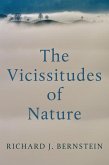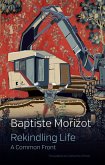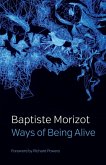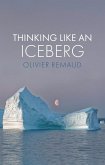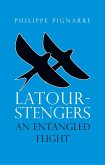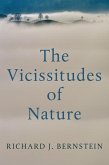From the forests of Yellowstone to the steppes of the Haut-Var, the French philosopher and environmentalist Baptiste Morizot invites us to develop a different relationship to nature: to become detectives of nature and to follow the footprints of the many wonderful and extraordinary animals with which we share the Earth. By deciphering and interpreting an animal's footprints and other signs, we gradually discover not only which animal it is, but the animal's motives too. Through this kind of 'philosophical tracking', we come to see the world from the animal's point of view, to learn to live in this world from the perspective of another species. We begin to let go of our anthropocentric point of view and to recapture the kind of perspective that our ancestors once had when they had no choice but to adopt an animal point of view if they wanted to survive.
In short, by following animal trails, we learn how to pay increased attention to the living world around us and how to cohabit this world with others, thereby enriching our understanding of other species, of the world we share with them and of ourselves.
Hinweis: Dieser Artikel kann nur an eine deutsche Lieferadresse ausgeliefert werden.
In short, by following animal trails, we learn how to pay increased attention to the living world around us and how to cohabit this world with others, thereby enriching our understanding of other species, of the world we share with them and of ourselves.
Dieser Download kann aus rechtlichen Gründen nur mit Rechnungsadresse in D ausgeliefert werden.
Hinweis: Dieser Artikel kann nur an eine deutsche Lieferadresse ausgeliefert werden.
'Morizot practises an entirely new genre of experimental philosophy: he shuns thought experiments, seeking instead to experience how non-human animals perceive the world by looking for traces of their actions and, eventually, encountering some of them. Tracking wolves in the Alps, bears in Yellowstone or snow leopards in Kyrgyzstan is not for him the mere hobby of a nature-lover; it is a deeply philosophical exercise: it means experiencing the world from the point of view of other animals, hence partially transforming one's body into theirs so as to imagine what it is to inhabit a place from a non-human perspective.'
Philippe Descola, author of Beyond Nature and Culture
"[A]n impressive work of philosophy written in a beautifully lyrical form. Part memoir, travelogue, and science writing, the book's structure is almost novelistic with a strong narrative voice, characterization, compelling plot, and literary elements."
Leonardo Reviews
Philippe Descola, author of Beyond Nature and Culture
"[A]n impressive work of philosophy written in a beautifully lyrical form. Part memoir, travelogue, and science writing, the book's structure is almost novelistic with a strong narrative voice, characterization, compelling plot, and literary elements."
Leonardo Reviews



